How To Prepare For A 1275 Hearing & Obtain Bail
All you want is to bail your loved one out of jail as quickly as possible. When someone is arrested, the bail process can be confusing and stress under any circumstances, but even more so when the Court is asking additional questions about income and finances. The judge wants to see tax forms, credit card bills, verify rent and car payment amounts, and check income. This seems more like a tax audit than bail bond hearing. What's going on?
It's a “1275 hold” that requires a hearing before a judge. Most bail bonds can be posted within hours of arrest. However, depending on what crime the defendant has been charged with, the Court may require proof that the bail money is coming from legal sources. A 1275 hearing is relatively simple to navigate successfully; it just takes experience and understanding of the process.
Purpose of 1275 Holds and Hearings
The term "1275" refers to Section 1275.1 of the California Penal Code. It addresses the circumstances where a judge may deny bail if there's a possibility that the bail money has been obtained illegally:
1275.1. (a) Bail, pursuant to this chapter, shall not be accepted unless a judge or magistrate finds that no portion of the consideration, pledge, security, deposit, or indemnification paid, given, made, or promised for its execution was feloniously obtained.
In this context, "feloniously obtained" means that the bail money itself or security for the bail contract – meaning a loan application, deposit, collateral, or other promise to pay – was obtained from illegal sources. The person posting the bail must prove to the Court that the bail money or collateral comes from legal sources.
1275 Hearings Are Routine in Some Cases
When clients call about arranging bail for someone with a 1275 hold, they're often confused about why there is a need for a hearing. One client insisted that the hold was because the arresting officer "just didn't like" her son and wanted to cause the family additional heartache. But the son had been arrested for illegal possession of firearms and possession of narcotics with intent to sell. Charges like that almost always get an automatic “1275 hold”.
It's important not to take the hold and requirement for a hearing personally. The hold is based on the charge, not the person charged. The Court isn't asking for proof of the source of funds because it thinks you're a mafia kingpin. Based on the charges, they'd ask the same questions if you were a priest, mayor, or corporate CEO. The law requires the Court to verify the source of bail money.
While a judge or district attorney can request a 1275 hearing, the hold is usually placed by the arresting police officer based on the charges. Generally, if the defendant was arrested for crimes involving the exchange of money – identity theft, extortion, robbery, selling drugs, possession of stolen property, etc. – most officers automatically place a 1275 hold. That's because if a person is arrested for a crime where he may have illegally obtained money, then perhaps the bail money came from a similar source.
Under Section 1275.1, the defendant has to prove that the bail money is coming from a legitimate source before the bail process is completed:
(b), a defendant bears the burden by a preponderance of the evidence to show that no part of any consideration, pledge, security, deposit, or indemnification paid, given, made, or promised for its execution was obtained by felonious means. Once a defendant has met such burden, the magistrate or judge shall release the hold previously ordered and the defendant shall be released under the authorized amount of bail.
Essentially, the Court may ask you to show that you aren't posting bail using drug money, didn't rob the local liquor store, or drain your grandmother's bank account without her permission. It is perfectly acceptable to borrow money for bail, but you must show that the funds for repayment come from a legitimate source like income from a job or other regular monthly income.
What's Required for a 1275 Hearing
If you've ever bought a house, preparing for the hearing is a familiar experience. There's quite a bit of paperwork involved. The judge wants a complete picture of your financial situation, so expect to present everything from a year's worth of bank statements to credit card debt and car, rent, utilities and other monthly payment information, as well as proof of income.
For instance, if a client says he's paying for the bail bond using a $5k credit card advance on a $50k bail bond, the court wants to make sure he can make the credit card payments and still keep up with the rest of his bills. If financial records show that the client usually has less than $100 left at the end of each month, yet he says he can pay an extra $450/month to the bail bondsman, then something doesn't add up.
Clients often worry about saying the "wrong thing" to the judge, but as long as they're telling the truth, there is no "wrong" thing they can say. The judge isn't basing the decision on your personality or socio-economic status, but on the facts. Not telling the full truth about your financial situation or lying about where money is coming from is the worst thing you can do at a 1275 hearing.
Being dishonest about the source of funds gets the defendant into even more trouble, according to the law:
(i) The bail of any defendant found to have willfully misled the court regarding the source of bail may be increased as a result of the willful misrepresentation. The misrepresentation may be a factor considered in any subsequent bail hearing.
This is no joke. Lying to the court is bad for you and the person charged. You've committed perjury, and the defendant may have his bail increased – if he gets it at all.
You can represent yourself at a 1275 hearing; judges are used to dealing with laypeople in these situations. However, because a court hearing can be intimidating, some people prefer to have an attorney present. Others rely on their bail agents. Reputable, experienced bail bondsmen are familiar with the 1275 process and assist clients regularly.
Why Are 1275 Hearings Necessary?
The vast majority of 1275 hearings result in bail for the defendant. Because remember, it’s merely a request for information about the source of the bail money. For most people, it's an inconvenience that delays release on bail for a short time.
Are the Courts ever fooled in 1275 hearings? Yes, says bounty hunter, Zeke Unger. Mr. Unger has a lot of experience dealing with these types of cases. He's a “fugitive recovery” agent who works with our company on the rare occasions when a client “skips bail”. He specializes in what he terms "difficult recoveries" that might involve violent criminals, flight across state or international lines, or other complications.
Some of the most difficult cases for a bounty hunter are those where the defendant is a part of a large criminal enterprise like drug dealing, racketeering, and other organized crime efforts that has set up a network of resources that look legal at first glance, but really aren't. Zeke explains:
"These organizations buy property all over the place with the idea of using it as bail collateral if one of their people gets arrested. They're always in the name of someone's grandmother or aunt or somebody that looks innocent and above suspicion. If they fool the Court, the bail bondsman writes the bond in good faith. The next day, the guy disappears – usually out of the country. The house cost $250k, and now it's gone. So what? They have a dozen others. To the drug cartels, that's just the cost of doing business."
Those types of cases help explain why the Court is so careful and thorough in examining the sources of bail money. Likely, if you’re involved in a 1275 hearing, you’re not dealing with anything like that; you’re just trying to help a loved one or friend make bail in order to present the best case at trial.
A 1275 hearing is an inconvenience for bail clients. It may also make you uncomfortable to have your financial affairs put under the microscope. However, it's an important part of the bail bond system. Like the bail bond system itself, a 1275 hearing helps protect society even as it protects the rights of defendants to be released on bail.
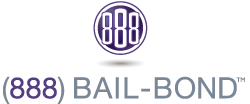
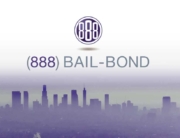
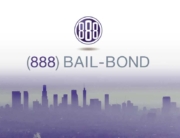
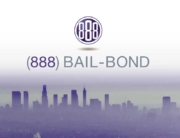


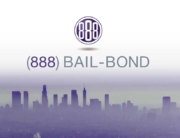
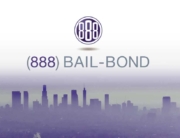
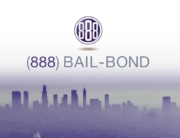
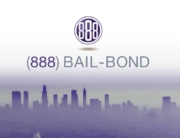
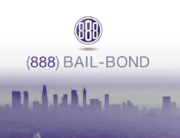




Follow Us
Facebook
Twitter
Google +1
LinkedIn
Youtube